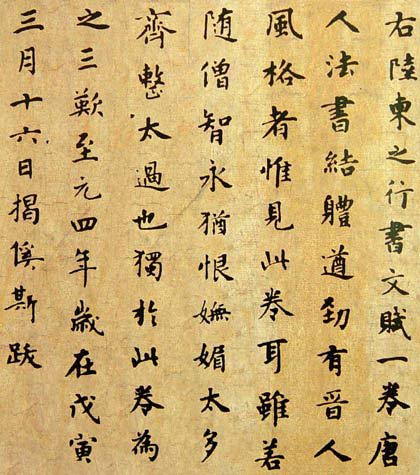Jiexisi (1274-1344) was a native of Longxing Fuzhou (now Fengcheng, Jiangxi). A famous writer, historian and calligrapher in the Yuan Dynasty. The word is Manshuo. He was named Zhenwen. He was appointed editor and editor of the Hanlin Academy of National History at the beginning of Yanyou. In the early years of the Yuan Dynasty, he was promoted to a bachelor's degree as a lecturer. He was given as a gift to protect the army. He was posthumously granted the title of Duke of Yuzhang County and was given the posthumous title of Wen'an. In the old days, it was called "Jiewen'an". He edited the histories of Liao, Jin and Yuan, and wrote fourteen volumes of "Wen'an Collection". His works of poetry and prose connect hundreds of schools of classics and history. The narration of the article is extremely strict and the language is concise and appropriate. Together with Yu Ji, Yang Zai and Fan Zhi, it is called the "Four Great Masters of Yuan Poetry". There is a biography in Volume 181 of "History of the Yuan Dynasty".
Good book. Zheng and calligraphers were born in Jin Dynasty, and they are ancient and powerful. At that time, when calligraphy became famous, steles were given to it in national annals and family biographies of meritorious officials. When someone used it as a pen, it was often passed down and recited by others. The tablets of Lao's tablets were published in all directions, and the text was like characters. It was a vast and special area. The surviving writings include "Thousand Character Essay", "Miscellaneous Books" and so on.

"Essays on Lu and Cambodia" on paper collected by the National Palace Museum in Taipei








